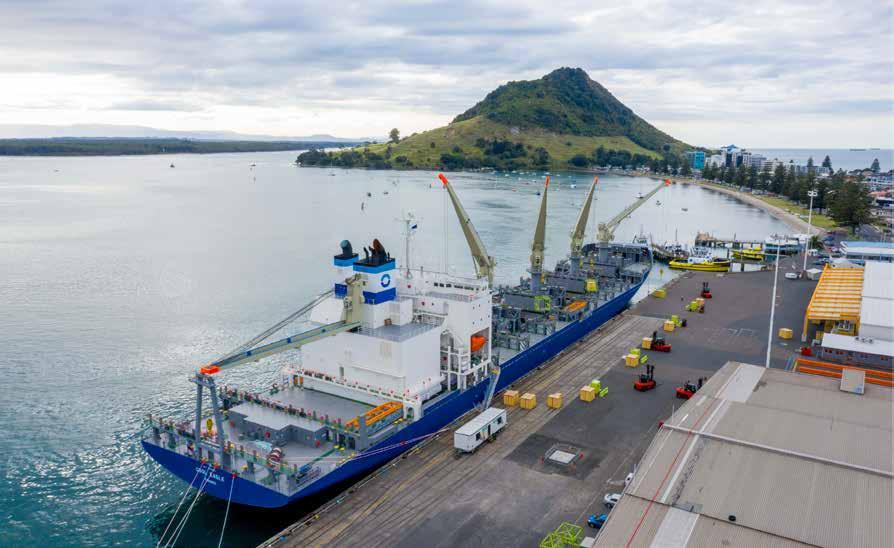
4 minute read
India Set For A Post-Covid Growth Trajectory
Indian government’s initiatives in digital technology, climate change, the space economy and the energy sector look promising to boost India’s growth trajectory on a global stage. Jay Changlani forecasts India’s growth after the pandemic.
The Covid-19 pandemic shook the world and brought nations to a standstill like never before. The world has been forced into yet another great economic crisis that is predicted to have longlasting repercussions throughout the 21st century. All of this while power and influence were beginning to shift and Asia was set to become the leading epicentre of the global economy. India was among the most affected countries with over 44 million confirmed cases, second only to the USA. However, two years later, India is not only surviving but is primed and ready to thrive in the postpandemic world.
India’s quick reaction has been commendable despite the pandemic’s devastating economic effects, particularly when the nation banded together to combat a lethal second wave of the infection early in 2021. India was the first nation to experience the effects of the dangerous Delta variant but responded promptly to ensure as many people as possible were immunised. Over one billion doses of the vaccine were administered before the end of 2021. In addition to safeguarding its own citizens, India has worked in the interests of the entire world by supplying more than 150 nations with medical equipment and supplies, as well as by putting a crucial supply of the COVID-19 vaccine on the international market. India has always provided essential pharmaceuticals to the world market, and more recently it has invested in the production of the COVID-19 vaccine to provide universal access. The International Monetary Fund (IMF), forecasts 9.5% growth in the Indian economy. India should reflect and realise its capacity not only domestically but aim to lead the world at this pivotal moment in history—especially in the afterglow of the nation’s 75th anniversary of independence.
As the pandemic left its mark on vulnerable communities, it is critical that India takes the relevant steps required to ensure these people can contribute greatly to India’s economy. The Indian government has already taken steps prior to the pandemic towards addressing these issues. Among the steps announced to boost infrastructure development plans, India plans to support development across sectors from banking, supporting farmers and their livelihood to technological and sustainable energy. In the space sector particularly, India could potentially catapult the space economy to $13 billion by 2025 as per Ernst and Young (EY) predictions. For India to continue its current upwards trajectory, sustainable “ India was the first economic growth must be nation to experience the prioritised. To create an economic strategy that supports rapid growth, effects of the dangerous India must continue to embrace Delta variant but long-lasting and future-focused responded promptly strategies rather than short-term incremental changes.
to ensure as many
people as possible India will also need to were immunised. Over one billion doses keep improving its level of competitiveness and business accessibility to keep up with other of the vaccine were growing countries such as China. administered before the Furthermore, the nation will need to end of 2021. ” step up its infrastructure efforts for health and education as well as for roads and bridges. Making sure that India’s demographic advantage pays off and that the millions of young people who enter the workforce each year find fulfilling employment is equally important. Finally, India is advancing swiftly in its energy transition through the government’s plans to launch the National Hydrogen Mission. The Mission aims to aid the government in meeting its climate targets and making India a green hydrogen hub. Additionally, India has
a special chance and a crucial role in promoting regional cooperation in its immediate neighbourhood South Asia, opening renewed prospects for development and prosperity.
Looking into the future, India has a unique opportunity to implement numerous policy changes amid the ongoing volatility and change to not only solve the immediate public health issues but also to establish itself as a key axis of power and influence in the post-COVID world. India has all the attributes to achieve unprecedented growth in the years to come and to become a global superpower capable of advancing towards a better, more promising, and more sustainable future for all, especially in New Zealand.

Jay Changlani
Treasurer, INZBC
Jay is a Chartered Accountant and a Director of Orb360, Chartered Accounting firm based in Auckland & Wellington. Jay has over 10 years of Accounting, forensic accounting and tax experience. Some of his previous roles includes, Tax Manager at Grant Thornton and Crowe Horwath (WHK), Tax Investigator at the IRD, Forensic Accountant at McDonald Vague, and Financial Accountant at Flight Centre. Jay specializes in International and domestic tax. He provides a wide range of tax technical advice across all tax types. Jay has a wide range of experience and has a broad understanding of tax regimes.












